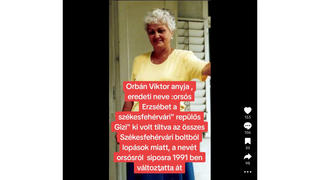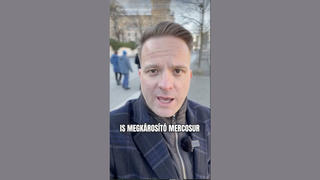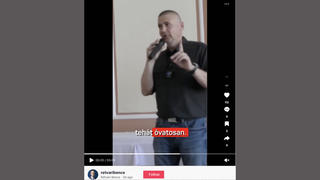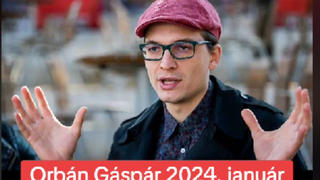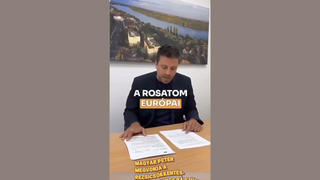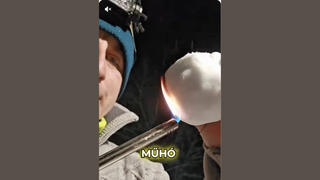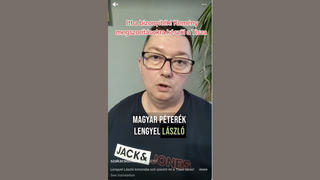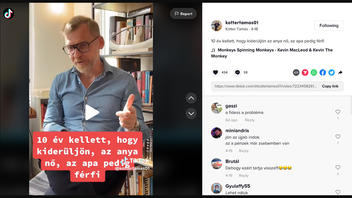
Did the European Court of Human Rights (ECHR) rule that mothers are women and fathers are men? No, that's not true: The ECHR's decision in O.H. and G.H. v. Germany addressed the narrow question of whether Germany had the right to identify a transgender parent as "mother" on a child's birth certificate, even though authorities had already confirmed the parent's legal status as a man. The ruling did not deal with broader questions of gender and parenthood -- indeed, it referred to the main plaintiff, who gave birth to the child, as "he."
The claim appeared in a TikTok video (archived here) published on April 18, 2023, by Tamás Kötter, a partner at the Megafon company, which produces social media videos in support of Hungary's governing Fidesz party. It opened (translated by Lead Stories from Hungarian into English):
Isn't this craziness? It took three courts and 10 years of massive litigation for the European Court of Human Rights to say that the person who brings a child into the world is a woman -- that is, the mother -- and the person who begets a child is a man -- that is, the father.
This is what the post looked like on TikTok at the time of writing:

(Source: TikTok screenshot taken on Fri Apr 28 11:36:59 2023 UTC)
The O.H. and G.H. v. Germany case was brought by a person identified by the initials O.H., a biological female whom German courts reclassified as male in 2011, according to the ECHR summary of the case. After obtaining the new gender status, O.H. discontinued hormone treatment and thus was able to become pregnant via a sperm donor in 2013. When O.H. delivered a boy, the civil register office insisted on recording O.H. as "mother" on the birth record -- not "father," as O.H. preferred. O.H. asked German courts to intervene, but the judges declined.
In 2018, O.H., along with child G.H., turned to the ECHR. They argued that German authorities' refusal to list O.H. as "father" constituted a violation of Article 8 of the European Convention on Human Rights, which guarantees the "right to respect for private and family life, home and correspondence."
On April 4, 2023, a panel of seven ECHR judges unanimously ruled that O.H. and G.H.'s complaint was "manifestly unfounded." They noted that
There was no consensus among European States as to how to indicate in the civil registration records concerning a child that one of the persons having parental status was transgender. Indeed, only five member States of the Council of Europe had made provision in their registers for a recognised gender, while the majority of the States continued to designate the person who gave birth to a child as mother and to allow the person who had contributed the sperm to acknowledge paternity in respect of the child.
Hence, the ECHR acknowledged that most states had no provision for recording parents' altered gender status on their children's birth certificates. The judges opined that such matters "fell within the margin of appreciation of the States," and added that the German courts had struck a "fair balance" between the rights of O.H. and G.H., the interests of children and public interests.
At no point did the ECHR rule that a mother is a woman and the father a man, as Kötter claims. The judgment consistently refers to O.H. as "he."
At the end of the video, Kötter asks whether the ECHR's decision ought to invalidate the European Commission's decision to withhold funding from Hungary. In December 2022, the Commission said it would not disburse more than €22 billion in EU cohesion funds, in part because it objects to a Hungarian law that prohibits the dissemination of LGBTQ materials among minors.
The O.H. and G.H. v. Germany ruling does not touch on this question.


